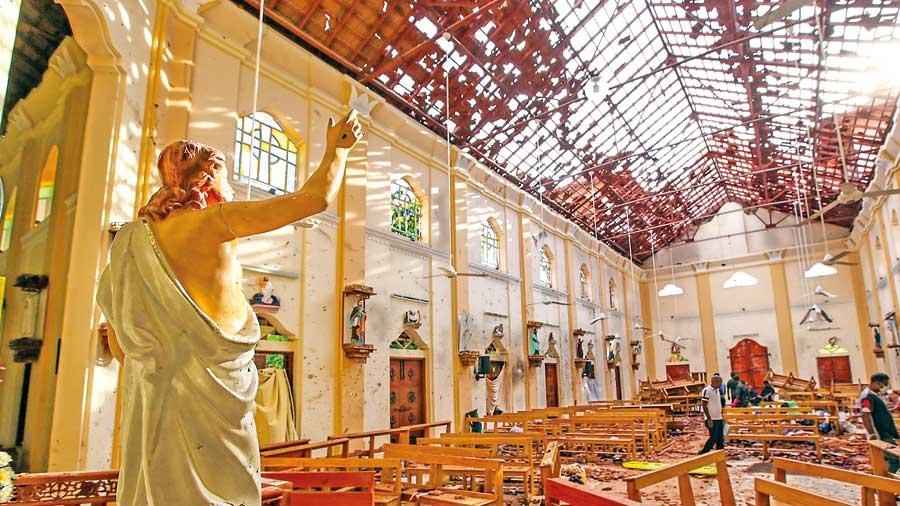Court rules negligence stood in the way of avoiding most heinous crime

“On the ill-fated day of 21st of April 2019, this island home was awoken rudely to witness one of its most tragic events in the annuls of its history and in a series of bomb explosions that sent the nation reeling in shock and disbelief, scores of innocent worshippers at several churches as well as citizens in several locations were plucked away from their loved ones in the most macabre and dastardly acts of terrorism that this country has ever seen. In what has now come to be known as the Easter Sunday Attack or the Easter Sunday Tragedy in its melancholy sense, there was desolation and despair all-round the country and it may not be denied that it took a long while for this country to limp back to normalcy from the ravages of this tragedy. The trail of destruction and dislocation that the Easter Sunday Attack has left in its wake is a memory that this country will long live with and this Court is not spared its reverberations,” the seven-member Supreme Court states in its 122-page judgement after taking into account 13 fundamental rights petitions filed by a group of petitioners, including victims and survivors whose family members faced one of the most tragic deaths in front of their own eyes.
Having endured a 26-year-long war with bombs, suicide attacks, landmines and even aerial attacks in the heart of Colombo, Sri Lanka was never used to a multiple coordinated attack where several bombs went off during almost the same moment of time. Though the method of the attack was new to the shocked Sri Lankans, the news of the plan to be carried out was known before hand by the intelligent agencies and those responsible from the top most positions.
The Supreme Court’s unanimous judgement was issued by the Chief Justice, Jayantha Jayasuriya, Buwaneka P. Aluwihare, L.T.B.Dehideniya, Murdu N.B. Fernando, S. Thurairaja, A.H.M.D.Nawaz and A.L. Shiran Gooneratne. The judgement amply and evidently displayed the serious state of affairs with regard to a set of people; the so called state intelligence to whom the security and protection of 22 million people in this country had been handed over to.
“We must express our shock and dismay at the deplorable want of oversight and inaction that we have seen in the conduct of affairs pertaining to Security, Law and Order and Intelligence. There are glaring examples of a lack of strategic co-ordination, expertise and preparedness that need a critical examination as to the way forward. The failures that eventuated in the Easter Sunday attacks and the concomitant deaths and devastations have left behind an indelible blot on the security apparatus of the Country and this Country which is blessed by a multi-cultural and multi religious polity cannot be left to the vagaries of these follies and made to suffer leading to violence, fear, apprehension and uncertainty. These events must recede into oblivion, but they remind us starkly of the necessity to effect legislative, structural and administrative changes,” the bench stated while expressing its shock.
“It is evident from the evidence placed before us that there is an urgent need to place the National Security Council (NSC) on a statutory footing and its composition specified with clarity, so that there are no maneuvers to manipulate hostile exclusions and selective inclusions. The affidavit testimonies and the large volume of documents we have perused highlight the necessity to revamp the security systems and intelligence structures, so that the expanding threats of terrorism and emerging challenges could be nipped in the bud and arrested as this country cannot descend into anarchy once more. The course of conduct we have scrutinised demonstrates a woeful lack of expertise in intelligence gathering and dissemination among important individuals entrusted with the task. For instance, the Office of Director, SIS and CNI must be occupied by individuals with necessary skill and expertise and the conduct of the Respondents who held the office, upon receiving sensitive intelligence, shows a lack of awareness and understanding of strategic vision,” explained the seven justices in their unanimous decision.

